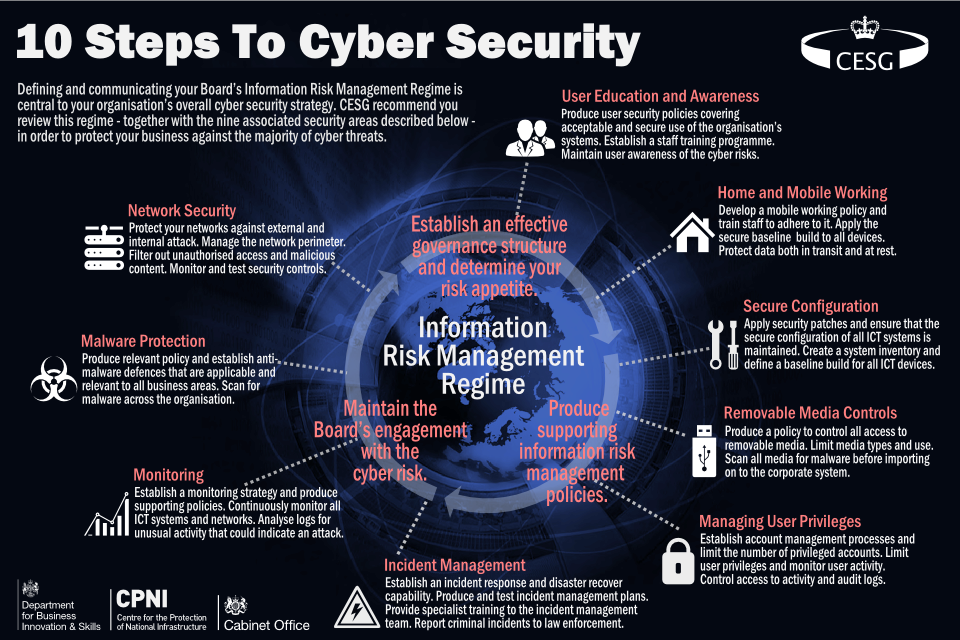In a striking call to action, UK lawmakers have openly criticized the government’s approach to cybersecurity, labeling it as an ‘Ostrich Strategy.’ This metaphor, implying that the government has its head in the sand regarding cyber threats, underscores the perceived negligence and lack of proactive measures in safeguarding national digital infrastructure.
The critique comes at a time when cyber threats are increasingly sophisticated, targeting everything from individual privacy to the very fabric of national security. The lawmakers’ admonition points to a stark gap in the government’s cybersecurity defenses, urging an immediate and robust response to the evolving digital dangers.

The UK Government’s guide to Cyber Security was last updated in January 2015. (Source: Gov.uk)
As cyberattacks become more refined and pervasive, the need for comprehensive cybersecurity strategies is undeniable. The term ‘Ostrich Strategy’ not only encapsulates the current state of inaction but also serves as a rallying cry for the government to reassess and strengthen its cyber defense mechanisms.
Chair of the Joint Committee on the National Security Strategy (JCNSS), Margaret Beckett, had a lot to say on the topic:
[blockquote text=”It is ever clearer that government does not know the extent or costs of cyber-attacks across the country – though we’re the third most cyber-attacked country in the world – nor does it have any intention of commensurately upping the stakes or resources in response.”]
One of the primary concerns raised by the lawmakers is the government’s apparent reluctance to invest in and prioritize cybersecurity. This hesitancy places not only governmental data at risk but also jeopardizes the personal information of millions of citizens. In an era where data breaches can have far-reaching consequences, the call for a fortified cybersecurity posture is both urgent and necessary.
The UK government has also failed in the past in granting people freedom of expression across the net:
UK Online Safety Bill and the Threat to Our Freedom of Expression and Privacy
byu/rowanhopkins inprivacy
Some points made by Ms. Beckett:
- The government maintains that the existing regulatory framework is adequate, yet regulators themselves highlight that limitations in their powers and the rules hinder their effectiveness.
- 42% of the essential service providers report a lack of necessary skills and capacity to meet the requirements set by the Security of Network & Information Systems Regulations (NIS Regulations).
- The government believes that increasing the National Crime Agency’s (NCA) resources by only 21% matches the need for combating cybercrime, a claim met with skepticism.
- There’s a call for the government to extend a new support package to local governments, in collaboration with the National Cyber Security Centre (NCSC), and to strengthen partnerships with insurance companies and the private sector.
- The government overlooks the prohibitive cost of cyber-attack insurance for victims like local authorities and small businesses and does not see the need for public intervention in the insurance market.
- Despite recognizing the vulnerability and lack of support for local authorities against ransomware attacks, the government has no plans to assist in developing their capabilities and skills.
The government’s response to these criticisms will be closely watched by both national and international observers. As the digital landscape continues to evolve, the need for dynamic and adaptive cybersecurity strategies becomes increasingly paramount. The ‘Ostrich Strategy’ must be abandoned in favor of a more vigilant and proactive stance against cyber threats.
With the right measures, including the adoption of recommended best free VPN services, the UK can emerge as a leader in cybersecurity, setting a benchmark for others to follow. The time to act is now; the safety and security of the digital domain depend on it.
